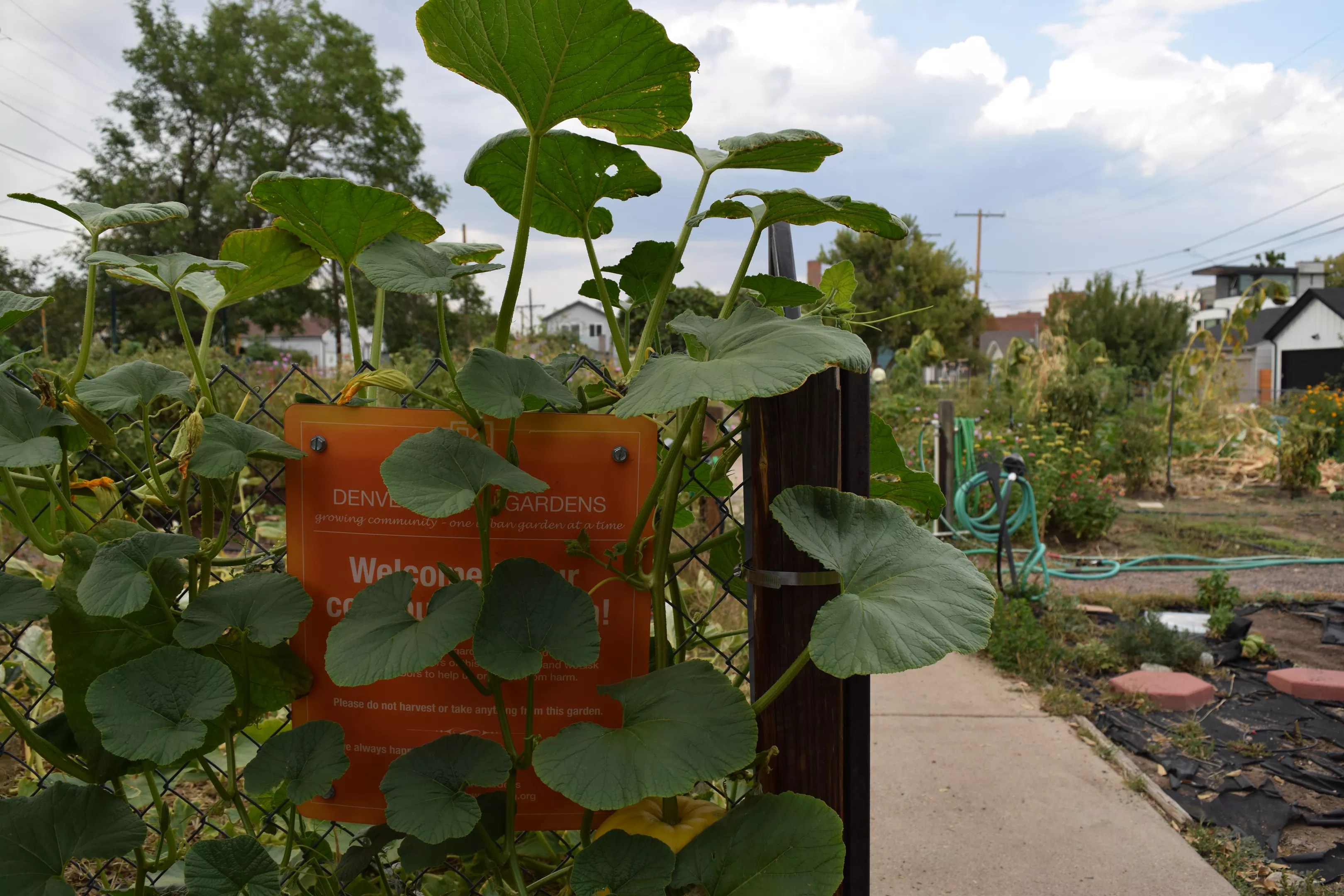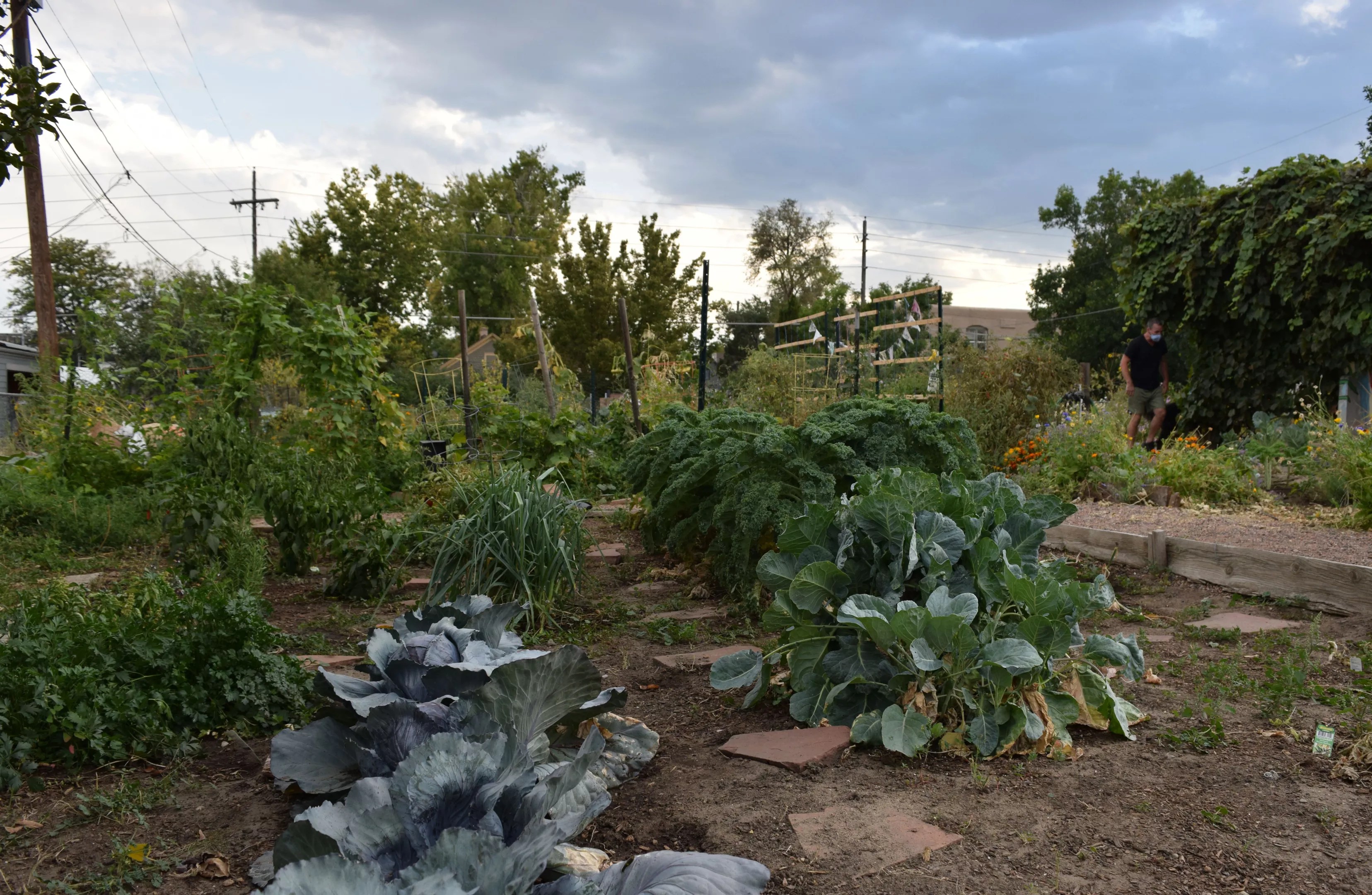
Claire Duncombe

Audio By Carbonatix
Editor’s note: The $1.2 million sale was finalized at the end of January.
The final act in a bitter dispute over the sale of two-thirds of El Oasis, a 43-plot garden at 3533 Quivas Street operated by Denver Urban Gardens, included a flurry of animated interjections over Zoom on January 19. The issue was no longer whether a portion of the garden in Highland would be sold – the deal is set to close by the end of January – but whether the city would issue a zoning permit allowing the property to be divided, ensuring that one-third of the land would remain a garden.
And in the end, Denver’s Board of Adjustments for Zoning ruled that the alley-facing lot (Zone Lot A) could be divided from the two street-facing lots on the condition that it be limited to primary, unenclosed use: a legal stipulation guaranteeing that the garden cannot be developed in the future, regardless of ownership. The two street-facing lots will be developed into duplexes by Caliber Construction, which is purchasing the property.
Linda Appel Lipsius, DUG’s executive director, says the organization “is pleased that Denver’s Board of Adjustments for Zoning voted unanimously to grant the variance that was requested. The variance allows a community garden to remain on a portion of the property in northwest Denver, providing community members with green space in which to grow food and to come together in community.”
DUG had initiated the sale of El Oasis last spring, in hopes of alleviating its outstanding debt and generating funds to support more than 180 other gardens around the city. At the time, DUG’s boardmembers said they believed selling the land was their organization’s only option for staying afloat; El Oasis had served as collateral for DUG’s line of credit since 2013.

El Oasis garden leaders Alan Olds and Ted Richardson were among those who rebelled at DUG’s decision to sell the property.
Claire Duncombe
Central to the $1.2 million sale was an agreement that the rear section of the garden remain under DUG maintenance. The 21,800-square-foot property had been sold to DUG for $1 in 1988, on the good-faith promise that it would remain a garden in perpetuity; the nonprofit said that keeping some of the garden would fulfill the requirement.
El Oasis gardeners disagreed, and began fighting the proposed sale when they learned of it in September 2020. The battle attracted attention around the city; DUG’s executive director, Dr. Violeta Garcia, stepped down. The garden’s supporters raised $500,000 in an attempt to keep it whole, but ultimately were unable to stop the sale.
“The clumsy way in which the sale was conducted – off-market and without input from those most affected, [while] characterizing our garden’s sale as the only way out of DUG’s financial situation, and casting our garden community as villains for proposing alternative solutions – has produced ill will and distrust,” says Alan Olds, an El Oasis Garden leader.
That sentiment was evident during the January 19 virtual hearing, which attracted over three dozen participants. Many signed on to oppose dividing the garden, but the board’s agenda focused on the previous denial of a zoning permit to divide the property because Lot A wouldn’t have street access. Instead, the board approved a permit that guaranteed alley access to Lot A, with the legal requirement that it remain an undeveloped space.

Access to El Oasis will be through an alley.
Claire Duncombe
“I’ve been on this board for a very long time,” board chair Penny Elder said during the hearing. “This is probably one of the most unique requests that I’ve seen in terms of what they’re trying to accomplish here. … It’s a very sad outcome if we don’t grant this. I think that the garden, that all these neighbors and the 38 people on this Zoom call are going to lose all of their open space, all of their greenness and lose this garden.”
Some community members expressed their support of the motion because it means that a garden – albeit diminished in size – will remain. “DUG is committed to taking the steps needed to ensure that the land remains undeveloped,” Lipsius promises.
But others feel the loss is greater than the gain. Says Olds: “Every piece of Denver green space that disappears at the hand of the developer’s shovel also tears out another piece of the city’s heart and soul.”